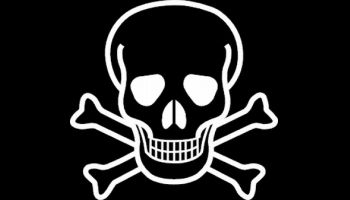German Pirate Party Servers Seized By Police

The German branch of the Pirate Party, which campaigns for civil rights on the Internet, has been raided
Police in Germany have reportedly seized a number of servers belonging to the German Pirate Party, as part of a French criminal investigation.
The servers, hosted at AixIT in Offenbach, were confiscated on the morning of 20 May, following a request by the French authorities. However, it is believed that the investigation only concerns a single public service on one of the party’s virtual servers.
A ‘massive intrusion’
Piratenpartei Deutschland claims the French investigation is not directed against the party or any of its subsidiaries, and that it is only involved as the server’s operator. The party’s board said it would do everything legally required to comply with the investigation, but lamented the unfortunate timing of the raid.
“The disconnection of all servers is a massive intrusion into the communications infrastructure of the sixth largest party in Germany,” said the party’s board in a statement. “Considering the state elections taking place in Bremen in two days, this caused severe political damage, which the Board condemns decisively.”
 The raid is thought to be in connection with a cyber-attack against the utility company Electricité de France last month. It has been suggested that the attack was planned and carried out by hacktivist group Anonymous, using an open source web application called PiratePad, that allows users to freely contribute to and edit documents.
The raid is thought to be in connection with a cyber-attack against the utility company Electricité de France last month. It has been suggested that the attack was planned and carried out by hacktivist group Anonymous, using an open source web application called PiratePad, that allows users to freely contribute to and edit documents.
“We believe the police’s main reason for the raid is because PiratenPad was being used by the group ‘Anonymous’ to organize an attack,” said the Etherpad Foundation, which powers PiratePad. “The main cause for concern is that all Etherpad deployments are used by various groups completely openly so we can assume that all German Etherpad deployments are now at potential risk of being impounded by the police.”
PiratePad is also used by Pirate Party UK to prepare documents and press releases.
Anonymous hacktivist group implicated
Anonymous launched DDoS attacks against the websites of PayPal and Mastercard last year, following the arrest of the WikiLeaks founder Julian Assange, because those sites stopped processing payments for WikiLeaks after it published a number of classified US diplomatic cables.
Anonymous also previously claimed credit for taking down the website of the International Federation of Phonographic Industry (IFPI), as revenge for its legal action against The Pirate Bay, and was identified as being behind attacks against the government websites of Zimbabwe and Tunisia.
The board of the German Pirate Party said that it will have to be verified whether the search warrant issued by the police was justified, and whether the response was proportional.
“After all, this action has led to a large-scale breakdown of the technical infrastructure of the Pirate Party Germany,” it said. “It will also have to be verified whether data have been affected that have no relation to the French investigation.”